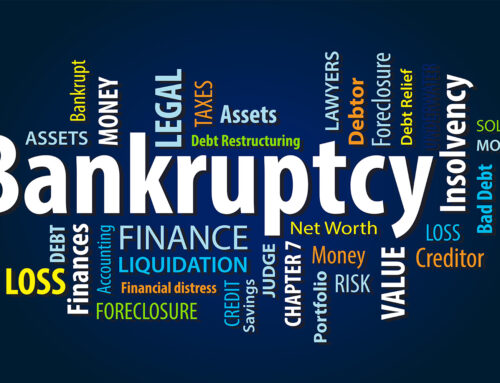It’s that time of year when many Americans gather pay stubs, W-2 forms, charitable receipts and other financial records to file state and federal taxes. Those who expect to write a check for taxes owed face the deadline, which is April 18 this year, with trepidation. Numerous others eagerly anticipate their annual tax refund and can’t wait for their automatic deposit or refund check. For anyone who has recently filed for bankruptcy or plans to file soon, however, the status of an expected refund remains a question mark.
Remember Why You Receive a Tax Refund
Based on the W-4 form you file, your employer withholds money from each paycheck to put toward your taxes for the year. You won’t know the exact amount of your taxes until you fill out your state and federal tax forms after the year ends on December 31. You tally all income, such as wages, interest and capital gains, as well as deductions and exemptions, and calculate the final taxes owed. If less money was withheld, or estimated taxes paid, than you now owe the state and federal governments, you must pay the additional amount. If more money was withheld than you owe, you get a refund for the overpayment.
Consider the Importance of the Bankruptcy Filing Date
When you file a petition for either Chapter 7 or Chapter 13 Bankruptcy, your creditors can no longer pursue debt collections, and all assets you own become part of the bankruptcy estate, controlled by a bankruptcy trustee. Assets include anything you own of value, such as property, jewelry, vehicles or cash.
Your tax refund is an asset whether you have it in hand at the time you petition for bankruptcy or receive it in the future. Any part of the received or anticipated refund based on income earned before you filed for bankruptcy is considered part of the bankruptcy estate unless it falls under a bankruptcy exemption. For example, suppose you petitioned for bankruptcy on February 1 of this year and filed your 2021 tax return on the same date. Any refund you eventually receive becomes part of the bankruptcy estate.
Check Out California Bankruptcy Exemptions To Protect Tax Refunds
California is the only state in the country offering two bankruptcy exemption plans. If you have lived in California for at least two years, you must choose one of the state exemption systems known as Section 703 or Section 704 Bankruptcy Systems. You can use the most advantageous one for your circumstances, but you cannot combine them, and you cannot substitute any federal bankruptcy exemptions instead.
California Section 703 includes a wildcard exemption of $1,550 that some persons use to protect income tax refunds. The wildcard amount increases if any part of the homestead or burial plot exemption in this section is not used. So if you don’t need to protect a lot of equity in the house where you live or a burial plot you own, you may be able to exempt even a large tax refund under this plan.
However, using one of California’s bankruptcy exemption systems to protect a tax refund may not work for every bankruptcy filer. Since tax refunds often have a lower value than other assets you want to protect, they may not take priority. For example, if you have a large amount of equity in your home, Section 704 is usually the best system, but it does not contain a wildcard exemption.
Contemplate Other Strategies To Keep Your Tax Refund
In some cases, it is still possible to preserve your refund even if you cannot protect it with a California bankruptcy exemption.
If you can, hold off on filing your bankruptcy petition until after you have received any tax refund due and put it toward household necessities such as rent or mortgage, utility payments, groceries or medical bills. Spending assets toward cost-of-living items is allowed, but do not use any refund money for purchasing luxuries or acquiring new assets.
If you’re still afloat but think you may have to petition for bankruptcy in the future, file a new W-4 with your employer as early in the year as possible to reduce the amount of withholding and avoid future tax refunds. This is especially helpful if you eventually file for Chapter 13 bankruptcy since the repayment plan typically runs for three to five years.
Seek Assistance From an Informed and Experienced Bankruptcy Lawyer
When you seek financial relief in California from the bankruptcy process, you embark on a journey complicated by a complex exemption system. You typically face a number of vital decisions to protect assets such as your home, vehicle and sometimes even a tax refund. Trying to figure it out on your own can lead to unfortunate decisions hindering your financial progress. At the Law Offices of Brent D. George, we have the knowledge and experience to help you make the best choices for your situation. Call us at (805) 494-8400 today for a free consultation.







